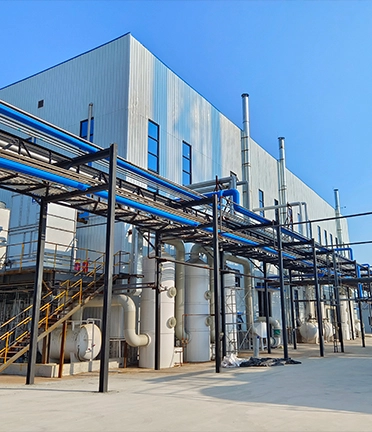flocculant chemicals for water treatment
Flocculant Chemicals for Water Treatment An Essential Guide
As the world grapples with ever-increasing demands for clean water, the importance of effective water treatment techniques cannot be overstated. Among these techniques, the use of flocculant chemicals plays a crucial role in removing impurities and ensuring safe drinking water. This article delves into the types, applications, and significance of flocculant chemicals in water treatment processes.
What are Flocculant Chemicals?
Flocculants are substances that promote the agglomeration of particles in water, facilitating their removal from the solution. These chemicals work by neutralizing the electric charge that keeps particles suspended in the water, allowing them to clump together into larger aggregates, or flocs. Once these flocs form, they can be removed through sedimentation or filtration processes. Flocculant chemicals can be categorized into two main types organic and inorganic.
1. Organic Flocculants These are usually polyacrylamide-based compounds that have been widely used due to their effectiveness and versatility. Organic flocculants are preferred in many applications because they can perform well at lower dosages and are biodegradable, making them more environmentally friendly compared to their inorganic counterparts.
2. Inorganic Flocculants These include aluminum sulfate (alum), ferric chloride, and polyaluminium chloride, among others. Inorganic flocculants are often less expensive than organic options and have been used for decades in large-scale water treatment facilities. However, concerns about their potential to release harmful substances into the water supply have prompted some shifts towards safer alternatives.
Applications of Flocculant Chemicals in Water Treatment
Flocculant chemicals are used in various sectors, including municipal water treatment, industrial processes, and wastewater management
1. Municipal Water Treatment Flocculants are essential in the drinking water treatment process. They help in clarifying water by removing suspended solids, including pathogens, organic matter, and sediments. A typical treatment process may involve coagulation, flocculation, sedimentation, and filtration, with flocculants playing a key role in the coagulation and flocculation stages.
2. Industrial Processes Industries such as mining, paper manufacturing, and food processing also utilize flocculants to separate solids from liquids. In mining, for example, flocculants are used in the separation of ore from waste material, which increases the efficiency of resource extraction while reducing environmental impacts.
flocculant chemicals for water treatment

3. Wastewater Treatment The treatment of wastewater is critical for safeguarding public health and the environment. Flocculants are used to remove suspended solids and colloidal particles from wastewater, enabling the effective treatment and recycling of water in various applications. This process is fundamental in both municipal and industrial wastewater treatment plants.
Importance of Flocculant Chemicals
The significance of flocculant chemicals in water treatment processes is multifaceted
- Improving Water Quality By enhancing the removal of particulate matter and contaminants, flocculants help in achieving the desired water quality standards for drinking and recreational use.
- Protecting Public Health Effective water treatment minimizes the risk of waterborne diseases, making flocculants vital in protecting public health, especially in areas where access to clean water is limited.
- Environmental Impact The use of flocculants aids in minimizing the environmental impact of various industrial processes. By enabling the recycling of water and efficient waste management, these chemicals contribute to sustainable practices.
- Cost-Effectiveness Flocculant chemicals can be cost-effective solutions for water treatment, reducing the need for extensive filtration systems and enabling industries to reduce operational costs while still maintaining compliance with regulations.
Conclusion
Flocculant chemicals are indispensable in the realm of water treatment, playing a vital role in ensuring clean, safe, and potable water for various applications. As water scarcity becomes a growing global concern, the importance of effective treatment processes cannot be overstated. By understanding the types and applications of flocculants, industries and municipalities can better address the challenges of water quality and availability, paving the way for a more sustainable and healthy future. As technology and research advance, the development of even more effective and environmentally friendly flocculants is likely to enhance water treatment processes further, ensuring that clean water remains accessible to all.
-
Water Treatment with Flocculant Water TreatmentNewsJun.12,2025
-
Polymaleic AnhydrideNewsJun.12,2025
-
Polyaspartic AcidNewsJun.12,2025
-
Enhance Industrial Processes with IsothiazolinonesNewsJun.12,2025
-
Enhance Industrial Processes with PBTCA SolutionsNewsJun.12,2025
-
Dodecyldimethylbenzylammonium Chloride SolutionsNewsJun.12,2025





